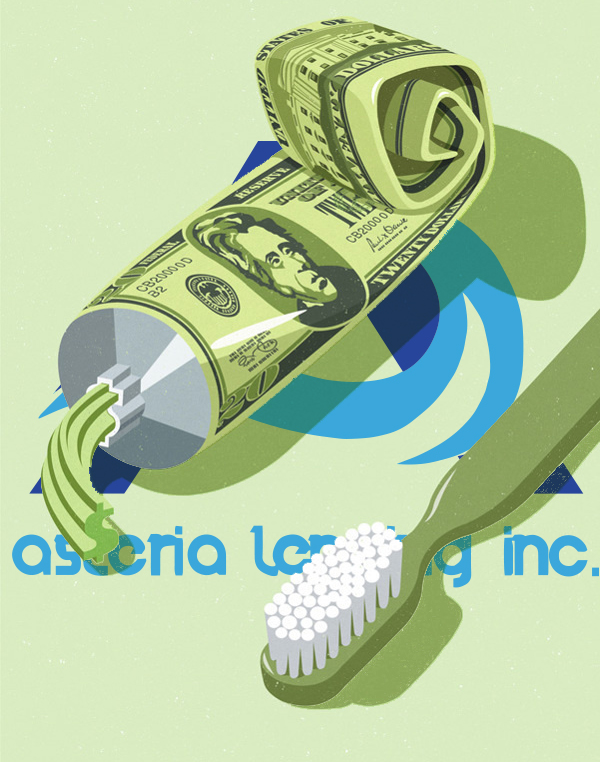Building wealth is like building a house. It takes a while to accomplish, but in the end, you’ll know it was time well spent. Also, like a house, slow wealth needs a sturdy foundation on which to stand. Here are some of the ways you can build a strong financial foundation for your future.

Pay Off Your Debts
A bit of healthy debt is a good thing. Healthy debt includes high-yield investments like a house, a business, or a college education. If your debt is unhealthy, such as high-interest credit card debt to purchase depreciating items (think vacations and cars), you’re building on a very shaky foundation indeed. Before it cracks, you need to shore it up.
Pay off your high-interest credit cards first, and then tackle them in order until they’ve got a balance of zero. It’s up to you whether you want to close the accounts after you’ve paid them off; some people save their cards for emergencies, or for the boost that a lot of available credit gives their credit score. Others, knowing they can’t trust themselves to use the cards properly, prefer to close the accounts and breathe a debt-free sigh of relief.
Spend Less Money
This seems like a no-brainer, but it’s more difficult than you’d think. Many of us don’t realize how much of our money goes toward consumables like fast food and nights out on the town. Reduce this type of spending and track your money with a spreadsheet or financial software. Even a session with a financial planner could be a good investment for your financial future.
Make More Money
Some people believe that increasing their income will pave the way for a wealthy future. They’re right, but only if your standard of living doesn’t rise in proportion to your income.
There are millions of “well-to-do” families barely making ends meet because of uncontrolled debt and spending. Why? Because when they get a higher level of income, they start buying more expensive things rather than investing that money in stocks or retirement funds.
Which would you rather have when you’re 60 years old: enough money to see you comfortably through retirement, or the memory of a zillion trips to fast food restaurants? If your income goes up, don’t waste it on rapidly depreciating things. Put it toward your future. Believe me; you’ll thank yourself later.
Building a Wealthy Tomorrow
How many streams of income do you have? For most of us, our job is our only source of income. The financially savvy know that the more income-producing assets you have, the better off you’ll be. Educate yourself about stocks, bonds, and small business ventures. Then put your knowledge to work by investing in such an enterprise.
Just don’t make the mistake of buying a collection of cars or designer clothing. It’s amazing what some people will invest in, not realizing that those purchases rapidly depreciate.
Start an Emergency Fund
The experts say you should have six months of income set aside for emergencies. Most people can get by with $3,000 to $5,000 in their emergency fund. The important thing is that you have such a fund and have access to the money contained therein.
A savings account is a good idea. It will accumulate interest while you leave it alone, and you can make a limited number of withdrawals when necessary. But you won’t have unlimited access to the money, so there is little risk that you will spend it on frivolous things.
Some people rely on credit cards to get them through troubled times. This leaves many families deeply in debt in the event of a job loss or a major illness. Credit card debt is costly. Don’t rely on it unless you’ve tapped out your emergency fund and have no other option.
Planning
It’s a Philippinian nightmare: we work all our lives, set aside some money for retirement, and then find that the money we’ve got at the end of our lives isn’t anywhere near enough. Impoverished and unable to work, we find ourselves at the mercy of anyone who’ll take us in, regardless of how they treat us.
That fate is unacceptable. You can build the framework for retirement security by starting now. If you’ve got a retirement plan through your employer, start making the maximum contributions as soon as possible. Then set up your own plan and make the maximum annual contributions. It’s anyone’s guess whether or not the younger generations will be able to count on Social Security in their old age; best not to risk it.
Independently Wealthy Doesn’t Mean Super Rich
When we hear someone described as independently wealthy, we often imagine them sipping fruity drinks with paper umbrellas as they sit on a white sand beach and watch the clouds roll across an impossibly blue sky.
I’m not suggesting that independently wealthy folks can’t afford an exotic vacation from time to time, but the chances are slim that they’ve taken up residence on a beach in Bora Bora. The fact that they no longer need a job doesn’t mean that they can live a life of unbridled spending. If they don’t manage their assets carefully, they won’t be independently wealthy for very long!
Simply put, you are independently wealthy when your income-generating assets produce enough income to cover your monthly bills. If you need $2,000 a month to pay your bills and maintain your standard of living, you’ll need assets that generate $2,000 a month in income. This can be achieved through stocks and other investments.
How Do I Get There?
One undeniable fact about getting rich slowly is that it’s, well, slow. Just as fasting for a month will result in a quick but short-lived weight loss, suddenly striking it rich won’t set you up for a lifetime of security if you don’t understand the principles of financial management. It’s not enough to get your hands on the money; you must know how to hold on to it and make it grow.
Take your time. The earlier you begin, the better. Put as much money as you can afford into investments. It’s okay to take some risks while you’re young. If you’re middle-aged or approaching retirement, it’s best to make safer choices like bonds and low-risk business ventures. Real estate is also good, though the market is so volatile right now that you might want to look elsewhere if you’re looking to cash out shortly.
Patience and persistence are the keys to independent wealth. Considering that your chance of winning the lottery or creating the next million-dollar Internet site is one in millions, getting rich slowly is the obvious choice. It is possible for anyone if they take the time.

